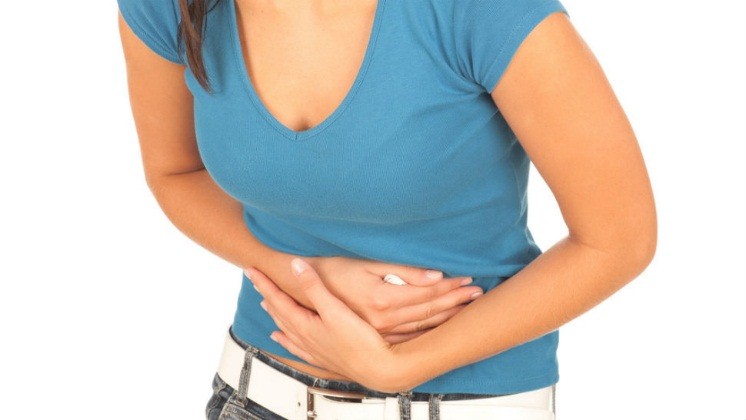 New Health Guide
New Health Guide
Have you ever heard that someone has "stomach flu"? What they probably had was gastroenteritis and not flu. Gastroenteritis is inflammation of the intestinal lining. It is caused by parasites, bacteria or a virus. In the USA, viral gastroenteritis is the second most common type of illness. Its cause is most often non-viral. It is spread through an infected person and contaminated water and food. The best way to prevent getting infected is by frequently washing your hands.
Dehydration is the most common problem that comes with gastroenteritis. Dehydration happens when you have diarrhea accompanied by vomiting and do not take in enough fluids to replace what you lost. The elderly, babies, people with weak immune systems and young children are the ones who are most affected by dehydration.
 General Symptoms
General SymptomsFor Adults
For Children
If your child:
For Infants
If the infant:
The below list is not all-inclusive. It, however, does include most causes of gastroenteritis that may be encountered globally.
|
Causes |
Name |
Description |
|
Bacteria |
Clostridium difficile |
Due to the antibiotic suppression of other competing intestinal bacteria, this bacteria will overgrow and produce more toxin. This bacteria causes the largest number of deaths owing to gastroenteritis mostly in people over 65 years of age. |
|
Listeria |
Its usual source includes dairy products that have been contaminated. It can cause listeriosis. |
|
|
Shigella |
Causes shigellosis with the symptom of food poisoning. |
|
|
Salmonella |
Causes salmonellosis with the symptom of food poisoning. |
|
|
Escherichia coli |
Causes diseases such as thrombotic thrombocytopenic purpura (TTP), hemolytic-uremic syndrome (HUS) or E. coli infections with the symptom of food poisoning. |
|
|
Staphylococcus |
Frequently causes staphylococcus food poisoning with symptoms like abdominal cramps and diarrhea. |
|
|
Vibrio |
Existed in contaminated sea food and water. It can cause cholera. |
|
|
Plesiomonas |
Existed in oysters and other seafood. |
|
|
Aeromonas |
Existed in contaminated seafood. |
|
|
Bacillus |
Existed in contaminated rice. |
|
|
Yersinia |
Existed in contaminated pork meat. |
|
|
Campylobacter |
Existed in dairy foods that have been contaminated. |
|
|
Virus |
Norovirus |
Causes about 50-70 percent of gastroenteritis cases in adults. It is the 2nd most common cause of gastroenteritis in America and is the most common cause of death caused by gastroenteritis. |
|
Rotavirus |
Commonly causes diarrhea in infants. It occasionally causes dehydration. |
|
|
Adenovirus |
It is a common cause of respiratory infections. However, there are some strains that cause symptoms associated to gastroenteritis. |
|
|
Astrovirus |
Commonly causes diarrhea in infants. |
|
|
Sapovirus |
Commonly causes mild gastroenteritis in children. |
|
|
Parasite |
Giardia |
Causesgiardiasis with the symptom of diarrhea by contaminated water. |
|
Cryptosporidium |
Causescryptosporidiosis by contaminated water and food. |
|
|
Entamoeba |
Causes amebiasis by contaminated water. |
|
|
Others |
Food allergies |
Shellfish, milk, nuts and eggs are especially common. |
|
Toxins |
Heavy metal toxins (mercury, lead, arsenic, cadmium and aluminum), Algal toxin found in shellfish and others. |
|
|
Antibiotics |
Many kinds of antibiotics promote overgrowth of fungus/bacteria. |
|
|
Medicine |
Many medicine cause diarrhea as a side effect. |
Symptoms often end within a couple of days as your immune system normally clears any infection. Occasionally, if the symptoms are severe, you may need to be admitted to hospital.
Viral gastroenteritis does not have specific medical treatment. Antibiotics are not effective against the viruses, and when you over use them, your body may develop a strain of antibiotic-resistant bacteria. Treatment is made up of self-care approaches.
You can gradually start by eating bland, easily digested foods like chicken, rice, bananas, gelatin, toast and soda crackers. If nausea returns, stop eating. Avoid certain substances and foods until you start feeling better. They include highly seasoned or fatty foods, nicotine, alcohol, caffeine and dairy products.
Antidiarrheal medication can also be given but not to children under 12 years old. This helps reduce the number of trips you make to the washroom/toilet.
Dehydration and the illness may have made you tired and weak.
Watch this video for more information in treating gastroenteritis: